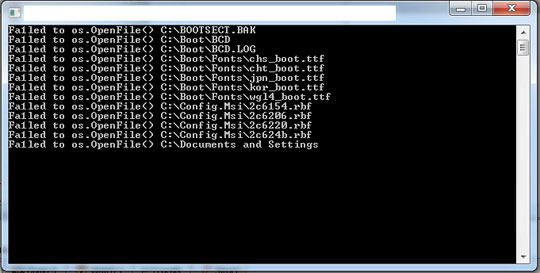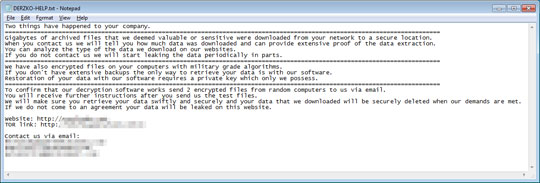Ransom.Win64.NEFILIM.AC
Trojan-Ransom.Nemty(IKARUS);
Windows


Threat Type: Ransomware
Destructiveness: No
Encrypted: Yes
In the wild: Yes
OVERVIEW
Downloaded from the Internet
This Ransomware arrives on a system as a file dropped by other malware or as a file downloaded unknowingly by users when visiting malicious sites.
It avoids encrypting files with the following file extensions.
TECHNICAL DETAILS
3,175,984 bytes
EXE
No
16 Jan 2021
Encrypts files, Displays message/message boxes
Arrival Details
This Ransomware arrives on a system as a file dropped by other malware or as a file downloaded unknowingly by users when visiting malicious sites.
Other Details
This Ransomware does the following:
- It encrypts all local drives.
- The strings and extensions being avoided are case sensitive.
- It displays the following error logs of files and folders that it attempted but failed to encrypt.

Ransomware Routine
This Ransomware avoids encrypting files with the following strings in their file path:
- Windows
- AppData
- Program Files
It appends the following extension to the file name of the encrypted files:
- .DERZKO
It leaves text files that serve as ransom notes containing the following text:
- {Encrypted Directory}\DERZKO-HELP.txt

It avoids encrypting files with the following file extensions:
- .sys
- .dll
- .exe
- .url
- .lnk
- DERZKO
SOLUTION
9.800
16.480.05
16 Jan 2021
16.481.00
17 Jan 2021
Step 1
Trend Micro Predictive Machine Learning detects and blocks malware at the first sign of its existence, before it executes on your system. When enabled, your Trend Micro product detects this malware under the following machine learning name:
- Ransom.Win32.TRX.XXPE50FFF039E0002
Step 2
Before doing any scans, Windows 7, Windows 8, Windows 8.1, and Windows 10 users must disable System Restore to allow full scanning of their computers.
Step 3
Note that not all files, folders, and registry keys and entries are installed on your computer during this malware's/spyware's/grayware's execution. This may be due to incomplete installation or other operating system conditions. If you do not find the same files/folders/registry information, please proceed to the next step.
Step 4
Search and delete these files
- {Encrypted Directory}\DERZKO-HELP.txt
Step 5
Scan your computer with your Trend Micro product to delete files detected as Ransom.Win64.NEFILIM.AC. If the detected files have already been cleaned, deleted, or quarantined by your Trend Micro product, no further step is required. You may opt to simply delete the quarantined files. Please check the following Trend Micro Support pages for more information:
Step 6
Restore encrypted files from backup.
Did this description help? Tell us how we did.

